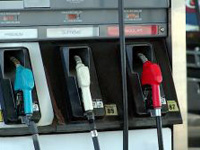Miles Per Gallon, A Valid Statistic?
 There has been some amazing fuel-economy levels touted for many of the new technology vehicles entering the consumer marketplace. General Motors claims a performance measure of 230 mpg for their Chevrolet Volt. And Nissan declares that their new ‘game-changing’ technology’ Leaf vehicle will get 367 mpg. Both of these numbers seriously surpass anything currently on the market.
There has been some amazing fuel-economy levels touted for many of the new technology vehicles entering the consumer marketplace. General Motors claims a performance measure of 230 mpg for their Chevrolet Volt. And Nissan declares that their new ‘game-changing’ technology’ Leaf vehicle will get 367 mpg. Both of these numbers seriously surpass anything currently on the market. The advent of hybrid technology vehicles has sparked numerous questions about the ‘miles-per-gallon’ statistic. Simply put, does the mpg of a traditional car mean the same when applied to a hybrid?
The best selling hybrid on the market right now, the Toyota Prius, claims 51 mpg, which is more than twice what was possible from their bestselling conventional car in 1990, the Toyota Camry. Both vehicles have roughly the same size gas tank, but we are to believe that the Prius is able to stretch the gas out twice as far as the Camry?. (*Note – I owned a Camry and was by far my favorite car that I owned).
The issue here is we are not comparing apples to apples. The mpg statistic on hybrids, all of them, includes the miles that are driven by the vehicle even with it is not using its gas-powered engine. This skews the perception of the statistic.
To skew the statistic even further, consider a hybrid vehicle with an electric battery that will allow you to travel 50 miles on just battery power. Now if this vehicle was purchased by a little old lady from Pasadena who only drove it to her local grocery store on Mondays, to her Bridge game on Wednesdays, to the grandkids on Saturday and finally to church on Sunday, and these destinations were all less than 25 miles away, she would never need the gas portion of her vehicle and her miles per gallon average would be much higher.
This reality is not limited to little old ladies, as there are many people that keep their driving under this amount and would not need to hardly buy gas.
Electric cars that have no gas component are using the miles-per-gallon statistic when talking about their vehicle’ss performance capability, and that is misleading. The Nissan Leaf, an electric car, gets its 367 mpg number by converting electricity usage into a petroleum equivalent.
The EPA does their own evaluations on fuel efficiency and could arrive at an entirely different number than the manufacturers. Researchers are struggling to find a standard to deal with vehicles whether they be hybrid or electric.
Jeff Gonder, a research engineer at the Department of Energy’s National Renewable Energy Laboratory who serves on a panel advising the EPA on these issues, says there might not be one ideal approach. “If it’s for consumers, maybe a cost comparison is best,” Mr. Gonder says. “If it’s for studying global warming, maybe it should be on the basis of greenhouse gases used.”
The Department of Energy has come up with guidelines that draw from several competing approaches. Citing those guidelines, Nissan says 82 kilowatt hours of electricity are the equivalent of one gallon of gasoline for the all-electric Leaf. Using the same standard, the GM Volt’s city fuel economy could drop to about 130 mpg, if the car’s expected electricity consumption were factored in.
Mr. Gonder says the committee is leaning toward recommending that the numbers for gasoline consumption and electricity usage be reported separately, as GM is anticipating. “No matter what you do, I think it will be a challenge with these vehicles to convey the information people really want.”
You can return to the main Market News page, or press the Back button on your browser.

